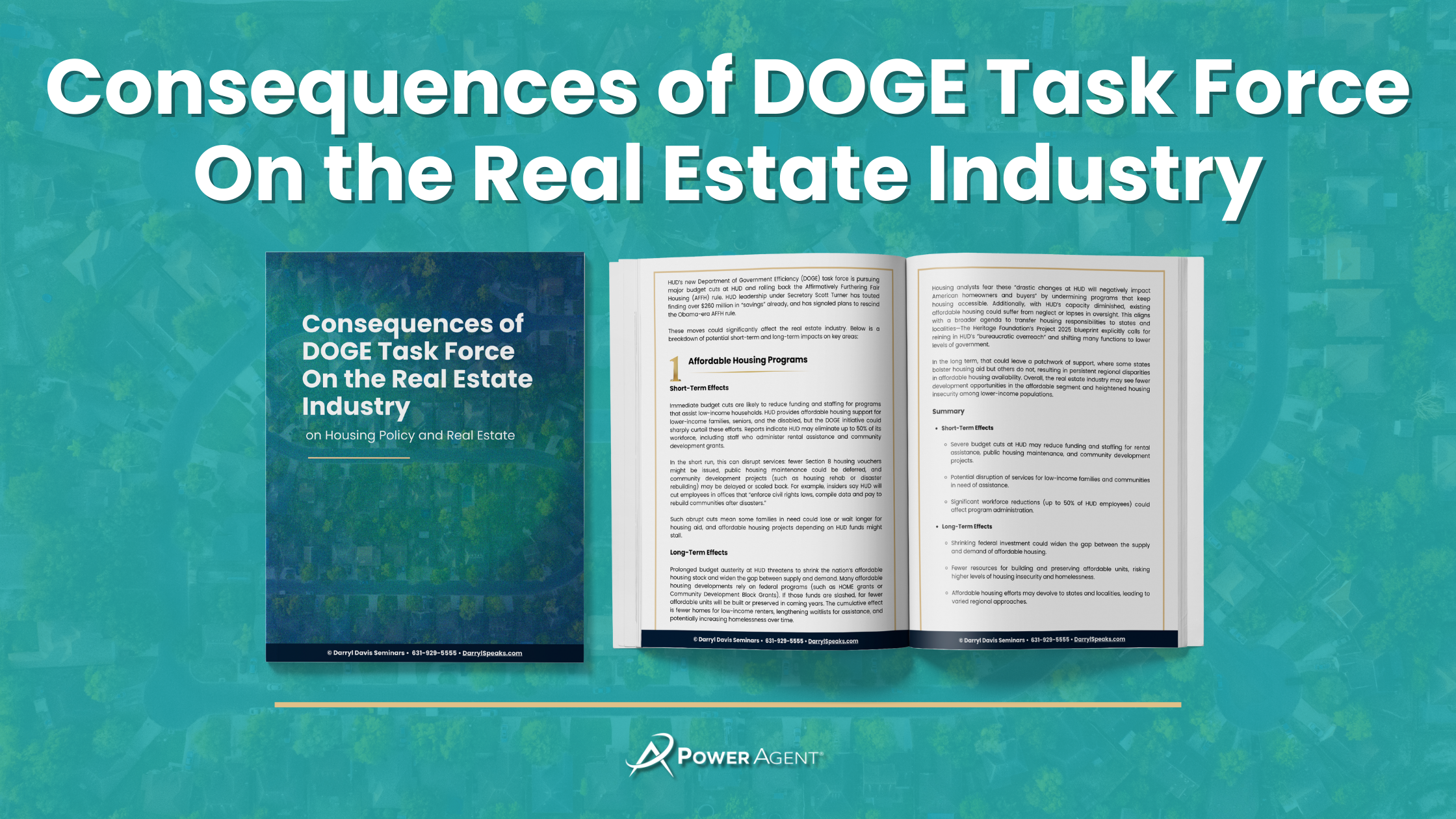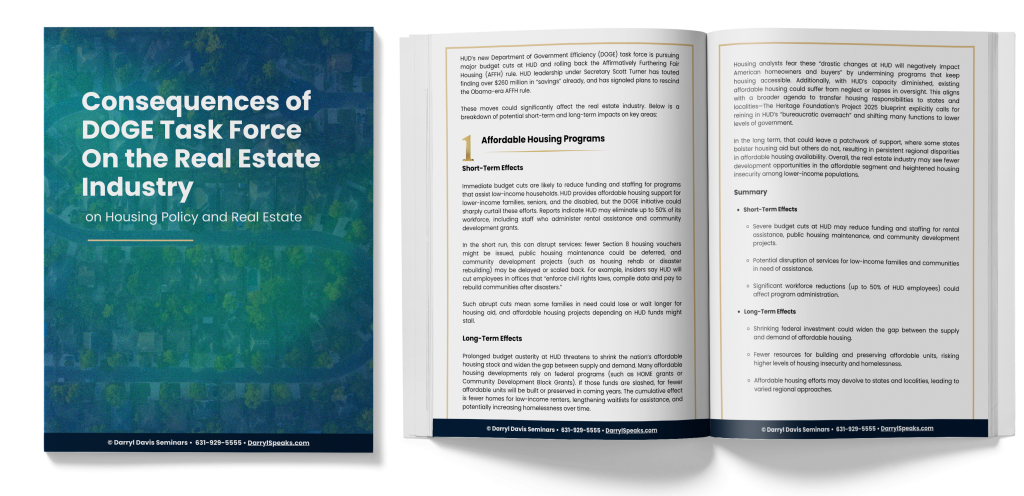
The DOGE Task Force vs. HUD: What Real Estate Pros Need to Know
DOGE Task Force budget cuts could shake up HUD programs, fair housing rules, and local zoning—get the full impact on real estate in our free report.
If you’ve been hearing whispers about some big changes happening at the U.S. Department of Housing and Urban Development (HUD)—especially involving something called the “DOGE task force”—you’re not alone. The new Department of Government Efficiency (DOGE) is shaking things up, and folks across the real estate industry are bracing for what could come next.
So, What’s the Deal with DOGE?
The DOGE task force is all about “maximizing efficiency” in government spending, which basically translates to major budget cuts and a push to scale back certain rules—particularly the Affirmatively Furthering Fair Housing (AFFH) rule. And while “efficiency” sounds great on paper, there are already reports of potential mass layoffs at HUD, plus concerns that crucial programs might lose funding.
Why It Matters
- Affordable Housing: With HUD’s budget potentially slashed, programs that help low-income families, seniors, and people with disabilities could see less support. This might mean fewer housing vouchers, delayed community development projects, and a serious strain on public housing.
- Fair Housing: The AFFH rule was designed to fight discrimination and segregation in housing. If it’s rolled back, local governments won’t face as much pressure to address these issues. Advocates worry this could make the housing market less fair, with wealthier neighborhoods staying exclusive.
- Market Shifts: These changes can create uncertainty—especially in areas where HUD plays a big role, like the Washington D.C. region. If federal jobs and funding dry up, demand for housing might drop in certain spots. Plus, if fewer affordable homes are built, some parts of the market could get more expensive.
- Local Zoning: With the federal government stepping back, cities and towns may get more freedom over zoning. This could mean some places stay restrictive (keeping prices high), while others try new ideas to meet housing needs.
Who Could Lose or Win?
- Losers: Typically, those on the lower end of the income spectrum, who rely on HUD’s assistance programs and protections, could be hit the hardest. First-time buyers might also struggle if housing prices continue to rise or if funding for down payment support dwindles.
- Winners: Investors and higher-income homeowners might benefit from tighter housing supply and rising property values in exclusive neighborhoods—especially if fewer affordable units are being built nearby.
Get the Full Details
If you want a deeper dive into the potential fallout for the real estate industry—from budgets and zoning to fair housing enforcement—grab our free downloadable report. We break down the key impacts, both short-term and long-term, plus how these policy shifts might affect everyone from renters and landlords to home flippers and real estate developers. 
Don’t miss out on this important information and what it means to your business. Download your copy of this report today and stay ahead of real estate market change that is on the horizon!
